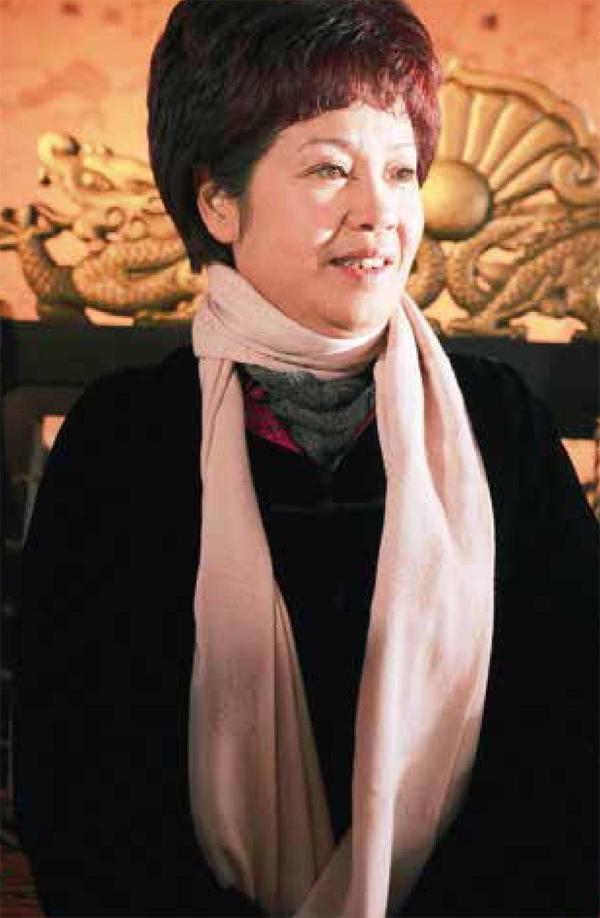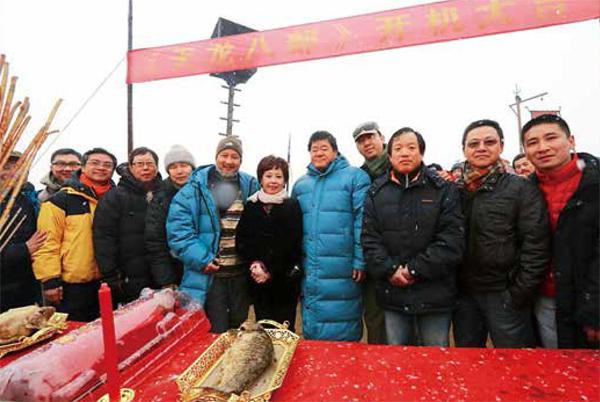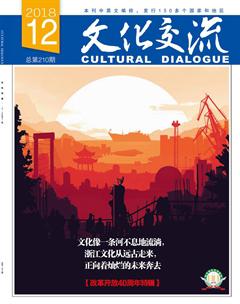我要讓最優秀的“華流”出海
陳抗
杭州西溪創意產業園內綠樹如蔭,分外安靜。疏影橫斜之間,坐落著棟棟小樓,華策影視就隱藏在這里。看起來并不顯山露水,但從這幢辦公樓卻每年輸出千集精品電視劇,成為“流量擔當”。
在我面前的趙依芳,因為感冒,喉嚨有些嘶啞,神色也略顯疲憊,但是很快她就打開了話匣子。
“人一生就三萬多天,每個人過得都不一樣,一定要找到自己的人生坐標才有動力。”摸爬滾打多年,作為華策影視創始人,趙依芳有了諸如“電視劇女王”“爆款專業戶”多個稱號,但她的初心始終是做自己想做的事情。
人生的三個關鍵節點
在趙依芳看來,他們這一代人很渺小,卻很幸運,因為他們踩中了極其重要的時間節點。
趙依芳回憶,自己有三個關鍵的時間節點:第一個關鍵節點是1978年,那一年,她成為了恢復高考后浙江傳媒學院新聞系的第一屆畢業生。“能夠來到省城讀書很幸運,當時我唯一的憧憬就是畢業后能找個‘鐵飯碗。在大學里,我看到了中共十一屆三中全會的公報,公報里描繪了國家改革開放的前景,提出要以經濟建設為中心,讓老百姓過上好生活。當時我覺得特別新鮮,好像懵了很久突然醒了,以前的認知都被顛覆了。我開始去思考自己想要做些什么。”
趙依芳的第二個關鍵節點,是她進入機關單位——東陽廣電局工作。改革開放之后,整個國家的機關體系缺乏人才,尤其是年輕人才,所以她那一屆畢業的四個年輕人得到了特別的培養和關注。在機關單位工作的12年,趙依芳得到了人生最重要的鍛煉和成長,也學習到了國家各行各業的政策規范要求,學會以國家的宏觀發展目標去看待問題。
那12年里,每年趙依芳都要下基層,到各個鄉、鎮、村去。在一次參與東陽的抗洪工作中,她三天三夜都沒有睡覺。“在基層鍛煉的過程中,我明確了自己人生的目標和方向,想著應該為這個社會做點事情,創業的理念和價值觀體系也逐漸有了苗頭。”趙依芳說。
趙依芳人生中第三個關鍵節點,是1992辭職“下海”。放棄“鐵飯碗”是很難的事情,她足足考慮了一年多的時間。“我還有好多想做的事情沒做啊,現在國家給了這么好的政策,我要去試試。所以我下定決心辭職。”
文化產業的改革開放之門
辭職之后,趙依芳來到杭州,在莫干山路上一家小賓館里租了兩個標準間,團隊只有五個人,白天出去跑業務,晚上回來做文案。
當時最大的考驗是在心理上,有求于人、重新起步,其中的心理落差必須一步到位地調整好。選擇參與電視劇制作后,趙依芳出品的第一部作品是電視劇《子夜》,在很多電視臺播出后得到了很好的反響,這給了她很大的成就感。
2003年文化體制改革后,趙依芳在浙江深切地體會到文化產業的改革開放之門打開了,民營影視行業開始有了發展機遇。“浙江省對于民營影視企業,從允許到鼓勵、支持、表揚、激勵,給我們創造了一個寬松的發展環境,”趙依芳說,“而且,我們不再只停留在命題作文式的題材里,開始思考去拍更多與市場接軌、滿足觀眾需求的作品。”
2005年10月25日,趙依芳成立了華策影視,希望能夠真正把電視劇的制作和營銷變成一個有長期發展邏輯的事情,打造一個面向未來的企業。
2005~2010年,是影視文化產業大轉型的時期。2009年,華策影視變更為股份制有限公司,2010年上市,成為創業板的“電視劇第一股”。華策成功上市后很長一段時間,還有不少同行不敢相信:“你們真的上市了?”
但是,上市之后,趙依芳一下子困惑了。本來做好內容就行了,進入資本市場后,要開始考慮利潤成長性、業務可持續性、企業的戰略規劃等等復雜的東西,考慮范疇變成了上億級別的投資。上市初期,趙依芳的思路很不清晰,不知道是要做賺錢的公司還是做有內容的公司,怎樣去平衡自己的愿景和上市公司的成長。
她思考了很久。有一天,她突然想明白了:“這個公司只要是我開的,就要專注做內容。”華策能有今天的成績,就因為對內容的堅守,圍繞內容去構建實力、做大產業、整合優質資源。
現在華策的定位很清楚:內容為王、產業為基、華流出海,打造中國影視文化“金名片”。
趙依芳開玩笑說,在華策,想做一部不成功的電視劇挺難。華策已經形成了自己的一套精品劇“質造”方法論,建立了完整的數字化工業體系,“優生優育”。“優生”就是從研發題材開始嚴把關,標準是五性:思想性、藝術性、觀賞性、政治性、市場性;“優育”靠的是賦能體系:華策建立了大數據研發中心、創意中心、評估中心、營銷中心、制作管理中心等一整套綜合體系,300多人的團隊從立項開始層層打分,從幾百個項目中挑選,在制作過程中及時調整,充分了解觀眾審美,精準把控流程。
打造價值精品,力推“華流”出海
在趙依芳的理解中,傳媒的本質是傳播,核心是去抓取時代的主流價值體系,這是文化的價值、國家的靈魂。
40年改革開放,極大豐富了老百姓的文化娛樂生活。文化產業經歷了從無到有、從有到逐步壯大的過程。題材和渠道多元化,從無屏時代到有屏時代再到多屏時代,現在又到了無屏時代,因為屏幕無處不在,隨時隨地觸發用戶需求。影視文化的內容形態,從“幾乎沒有”發展到現在的“非常豐富”。
在互聯網時代,內容在互聯網上的傳播影響很大。利用互聯網工具,華策已經打造出互聯網時代“文化+產業”新生態,新媒體運營、影視教育、文化旅游、廣告植入、IP運營等領域都有涉及,擴大了優質內容的“乘數效應”。
在趙依芳心里,一直有個“華流出海”的夢想,她希望中國文化能夠輸出到全球各地。華策的海外營銷方式是堅持在全世界“擺攤”,用市場化手段“走出去”,在內容、劇場、資本方面互鑒互利、共享共榮。事實證明,只要是有溫度的、彰顯中國文化的內容,都能夠打動海外觀眾。
在影視“出海”方面,華策已經成功將1萬多小時的影視劇行銷到全球180多個國家和地區,在影視出海領域的市占率達到近20%。華策還在全球多地設立分部,華策大家庭已經達到了1000多人。
“文化產業領域需要有改革開放的意識,”趙依芳說,“中國文化想要繁榮興盛,就要和世界各國文化相交、相融、相通,讓中國的文化成為世界的一個部分。”現在,浙江已經成立了浙江影視產業國際合作區,中國民營企業以后可以“抱團出海”,在政府支持下,共同尋找一個市場化的出口,推動影視產業的升級。
Zhao Yifang: Huace Film & TV Aims High
By Chen Kang
Huace Film & TV, a public company listed on the Shenzhen Stock Exchange, is headquartered in a creative industrial park near a wetland in Hangzhou, capital of Zhejiang province in eastern China. The villa-like office in the scenic park doesnt look awesome, but Huace is a giant producer of television dramas, making more than 1,000 episodes of television dramas a year.
Zhao Yifang is the media groups president. “A human life is about 30,000 days and nights long and no ones life is the same. For me, I feel motivated when I have objectives,” said Zhao Yifang in a press interview.
In her eyes, the three turning points in her life have synchronized well with the nations fast and ambitious advancing toward modernization. The first turning point of her life occurred in 1978, a year when China officially launched the great reform and opening up to the outside world. She studied journalism at Zhejiang Radio and Television School, a two-year junior college which has evolved into present-day Communication University of Zhejiang. In the two years, she witnessed unprecedented changes across China as the whole nation began to break away from stereotyped thinking. Before she came to college, she dreamed that the college education would give her a lifelong good job. In college, she woke up to the new possibilities opened up by the modernization drive. She began to wonder what she could do in the future.
After graduation, she was assigned to work at Radio and TV administration of Dongyang in central Zhejiang. Back then, the government badly needed young talents. She and three other college graduates were given special training and work opportunities at the administration. The twelve years she spent at the administration were her formative years, helping her to understand the national situation and individual dreams, and to form her values and give her a dream of starting her own business.
The third turning point of her life occurred in 1992 when she quit the good job at the administration and started her own business. She had hesitated for a year, weighing possible losses and gains. Eventually she made up her mind.
She quit the job and came to Hangzhou. She rented two rooms in a small hotel as offices. Altogether there were five of them starting a small media business. They went out to do business during daytime and spent evenings at hotel rooms writing plans. Her first television production was , a 14-episode drama based on a 1932 classical novel by Mao Dun. The series was screened by many television studios and the initial success gave her a sense of pride.
The year 2003 witnessed the restructuring of the nations showbiz system. Zhao felt a door opened. Preferential policies issued by the government made it possible for private media groups to make big in the industry.
On October 25, 2005, she founded Huace Film & TV, hoping to see a long-term logical growth in the production and marketing of television dramas. The company boomed. In 2010 it was listed at Shenzhen Stock Exchange. After it turned public, many fellow showbiz people still couldnt believe the company was listed.
Zhao hesitated about what she should do for a while after the public listing: should Huace focus on the financial side of the business or should Huace dedicate to content-making? Then she knew what to do: as long as Huace was hers, it would do nothing but content making.
Nowadays, Huace is Chinas leading producer of television dramas. With a solid and sound production system, Zhao joked that it would be very difficult for Huace to make a bad television drama. About 300 experts work together to make sure a television drama will be a winner.
Zhao understands that the nature of media is communication and a successful communication hinges on the mainstream value. The value is the core of culture and the soul of a nation.
Zhao has long dreamed of exporting Chinese television dramas to overseas market. Huace has sold television dramas to over 180 countries and regions across the world, which amounts to more than 10,000 hours, accounting for nearly 20% of Chinas content export. Huace has many overseas offices and has more than 1,000 employees.

